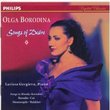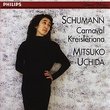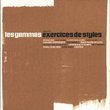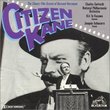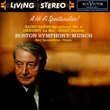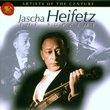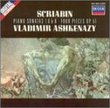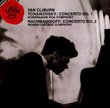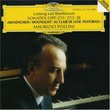| All Artists: WA Mozart, Beaux Arts Trio Title: Mozart: Complete Piano Trios Members Wishing: 1 Total Copies: 0 Label: Philips Release Date: 4/11/1995 Genre: Classical Styles: Chamber Music, Historical Periods, Classical (c.1770-1830) Number of Discs: 2 SwapaCD Credits: 2 UPC: 028944615425 |
Search - WA Mozart, Beaux Arts Trio :: Mozart: Complete Piano Trios
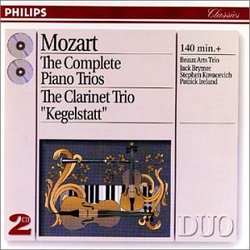 | WA Mozart, Beaux Arts Trio Mozart: Complete Piano Trios Genre: Classical
|
Larger Image |
CD DetailsSimilar CDs
Similarly Requested CDs
|
CD ReviewsBeautifully played Mozart chamber music! Mike Powers | Woolwich, ME USA | 05/20/2000 (5 out of 5 stars) "This 2-CD set contains some of Mozart's loveliest chamber music. Originally recorded in 1967-1970, the Beaux Arts Trio, (then comprised of pianist Menahem Pressler, violinist Daniel Guilet, and cellist Bernard Greenhouse) play with great sensitivity and warmth . Mozart composed most his piano trios during the last five years of his life - from 1786 through 1788. Here we see him at "full stretch," with his chamber music style fully developed. The Beaux Arts do an admirable job of conveying the necessary atmosphere of intimacy and serenity, and at the same time great vitality, in their playing. Outer movements are at just the right tempo to give the music a joyful exuberance, and the slow movements convey a wonderful sense of peacefulness. Also included in this set is Mozart's famous clarinet trio, the "Kegelstett." Stephen Kovacevic (piano), Jack Brymer (clarinet), and Patrick Ireland (viola) play with a dynamic musicianship equal to that of the Beaux Arts Trio; as a result, the "Kegelstett" is just as impressive as the piano trios.The CD sound quality is excellent, with a high degree of realism and immediacy. However, these analog recordings, originally mastered over thirty years ago, do have a bit thinner string timbre, which seems more prominent with the violin. Still, this detracts very little from an overall wonderful listening experience. Highly recommended!" Elegance Musicus | Oslo, Norway | 06/23/2005 (5 out of 5 stars) "These performances are wonderful, pure, relaxed and elegant. Mozart's Piano Trios are mostly mature works, still more easy listening and less expressive, less demanding than his "Haydn" quartets, most essential string quintets (K. 515, 516, 593), the piano/wind quintet (K 452), the piano quartet (K. 478) and the trio labelled "Divertimento" (K. 563). This makes it more difficult to explain what their charm consists in. Let me try with words like playful coolness, charming equanimity, happy serenity, light imperturbability, natural elegance, soothing purity or unruffled whiteness... Elegance is the keyword." Fine Mozart at a Bargain Price Ross Kennett | Narooma, NSW Australia | 04/06/2007 (5 out of 5 stars) "I can't add much to Mike Powers excellent review, but a few thoughts. This is another in the Philips Duo series, which I find a good source for the chamber music of Mozart, Beethoven, Schubert etc at bargain prices. The way these composers are played remains pretty much unchanged since these recordings were made in the late 60s and the 1970s, and made by the finest players of the time. When you thought piano trios you thought the Beau Arts Trio, who made the piano trio their speciality. So you can be sure that the interpretation will be excellent, which it is, and, despite the age of the recording, the sound is very good. And the music ? Some who take life too seriously might put them down as " more Mozart lollipops", well, they don't pretend to compare with a Brandenburg, but they are joyfull and airy, more like a small scale piano concerto, plenty of fine melodies for all the players.
I have no hesitation in giving five stars, there might be a better version available, but it will cost at least twice as much." |

 Track Listings (12) - Disc #1
Track Listings (12) - Disc #1